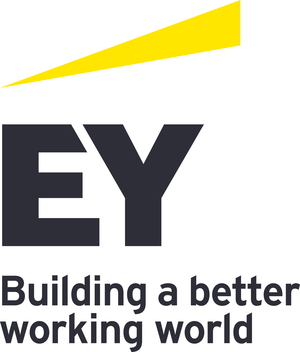According to the survey, nearly half (46%) of companies, on average, do not have the skills within their current workforce to realize the investment on their adopted technologies. Companies recognize a lack of maturity in many skills around digital technologies they have deemed as critical — on average, the gap between importance and maturity is 36%. For instance, the increasing availability of data analytics and insights was cited by 43% of executives as one of the top three trends that will positively impact their company's business growth in the next three years. Yet, the gap between strategic importance and maturity of key skills was one of the widest on data analytics at 59%.
"The sector is now in a critical period in which the role of technology will only accelerate, the volume of data will only grow and competition for talent will only increase," said Tim Haskell, US Oil & Gas People Advisory Services Leader, Ernst & Young LLP (EY US). "The challenge for oil and gas is immediate. It's not enough for companies to simply spend more on technology. Investment in the workforce is needed to scale and integrate technologies and ultimately capture the intended value. Companies must find an investment balance while addressing market pressures. Otherwise, the industry will lose crucial years and potentially a generation of workers."
Organizational and cultural challenges top the list for barriers to reskilling
Ninety-two percent of executives agree their ability to reskill as a company will determine their success over the next three years. However, only 9% feel strongly that they have a robust plan in place to do so, and just 3% feel strongly their organization is good at teaching in-demand skills, according to the EY survey.
When asked about their current workforce, oil and gas executives said 60% of workers need to be reskilled or upskilled, and it will take an average of 10 months to reskill the average worker, with nearly half of executives (48%) expecting it to take a year or longer. Executives raised the time needed to reskill (97%), competing priorities (95%) and difficulty in assessing employee progress (95%) as primary impediments to reskilling. Furthermore, two-thirds expressed a belief their organization's structure hinders its ability to innovate, making solving these and other challenges more difficult.
Proceed with caution — executives expect future access to in-demand skills
Oil and gas executives anticipate greater access to workers with digital skills within the next three years, alleviating the current shortage, according to the EY survey. The proportion of executives whose companies have adequate access to workers with cloud computing skills is expected to improve 11 percentage points over current availability along with digital literacy (+18), data science (+26) and artificial intelligence (AI, +24).
"Oil and gas executives may be overly optimistic in their view of improved access to digital skills in the future," Haskell said. "Demand for digital skills is growing across every industry. Those with AI and data science capabilities will be some of the most sought-after talent in the coming years. Oil and gas will encounter stiff competition for talent and will have to overcome negative perceptions among younger generations who tend to favor careers in technology and other industries. This makes reskilling and upskilling even more critical for oil and gas companies."
About the survey
The survey was conducted to measure digital technology and skill adoption in the oil and gas industry. The survey respondents consisted of 59 oil and gas executives representing integrated oil companies, national oil companies, independent producers and oilfield services companies. Respondents hold functional roles across their organizations, including IT, HR, operations, strategy and digital. Forty percent hold a C-suite or executive vice president title. Respondents live in or work for companies with operations in North America, Latin America, Europe, Middle East, Africa and Asia-Pacific. The survey was fielded between June 6 and July 5, 2020.
Study findings and illustrations can be found at ey.com/oilandgas/digitalskills.
About EY
EY is a global leader in assurance, tax, strategy, transaction and consulting services. The insights and quality services we deliver help build trust and confidence in the capital markets and in economies the world over. We develop outstanding leaders who team to deliver on our promises to all of our stakeholders. In so doing, we play a critical role in building a better working world for our people, for our clients and for our communities.
EY refers to the global organization, and may refer to one or more, of the member firms of Ernst & Young Global Limited, each of which is a separate legal entity. Ernst & Young Global Limited, a UK company limited by guarantee, does not provide services to clients. Information about how EY collects and uses personal data and a description of the rights individuals have under data protection legislation are available via ey.com/privacy. For more information about our organization, please visit ey.com.
Ernst & Young LLP is a client-serving member firm of Ernst & Young Global Limited operating in the US.
© 2020 Ernst & Young LLP.
All Rights Reserved.
2009-3582333
ED None
SOURCE EY

Related Links
http://www.ey.com





Share this article